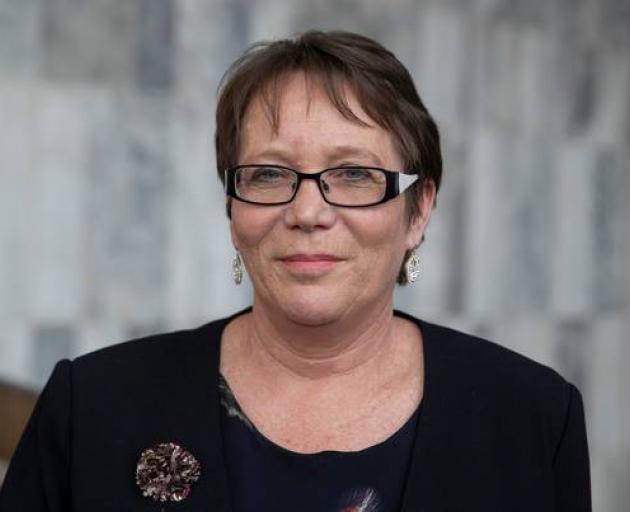
No matter how many times you watch it, it does not lose its power to shock.
A staff member at a Sydney nursing home, concerned about the behaviour of a colleague, decided to put a concealed camera in a resident's room.
What the camera captured was an 85-year-old with dementia being repeatedly slapped and hit by a cruel worker meant to be caring for her.
The footage astonished Australians all the more because it proved to be the tip of the iceberg.
In September last year ABC's Four Corners programme launched a two-part special investigation into the treatment of the elderly in aged care homes.
It was novel - ABC crowd-sourced material from its audience - and it revealed something of the scale of the problem: more than 4000 people responded, many of them aged-care workers frustrated with the industry.
Australia's federal government was already aware there were issues in aged care, having instigated a select committee of inquiry.
However, before it reported back, the government went one step further and called a full Royal Commission into Aged Care Quality and Safety.
Its terms of reference are to investigate quality of services, whether they meet people's needs, the extent of substandard care, and whether any systemic factors are leading to mistreatment or abuse.
Cases as extreme as the one in Sydney are hopefully singular, but it would seem unlikely that every New Zealander in an aged care facility is receiving exemplary treatment.
If complaints to the Health and Disability Commissioner are any guide, there are certainly issues in New Zealand.
The 114 cases involving rest homes and retirement villages on the HDC database include a women who died after a nurse gave her another patient's hypertension medicine, a woman with dementia who was not showered for at least 12 months, and a man sent to a rest-home for respite care without a management plan for catheter issues - a problem which contributed to his death.
The office of the Ombudsman will this year implement a new monitoring and inspection system around the treatment of patients in privately run aged care facilities, as part of its responsibilities under the United Nation’s Optional Protocol to the Convention against Torture (OPCAT).
Chief Ombudsman Peter Boshier hoped the work would be a safeguard for vulnerable people.
''As the population ages and the number of aged care facilities increases, it is so important for them to be independently inspected.
''We need to act now, because the number of people with dementia is projected to nearly triple to around 170,000 by 2050.''

The Government has highlighted initiatives to reduce older people's risk of abuse and harm as one of the discussion points in its ''Better Later Life - He Oranga Kaumatua 2019 to 2034'' strategy document, which is now out for public consultation.
New Zealand's previous ageing strategy was written in 2001 and its targets expired in 2010, so another look at the sector was well overdue, Seniors Minister Tracey Martin said.
The Minister said she had a high level of trust in New Zealand's oversight of how older people were cared for, but believed there was merit in the call by seniors advocacy group Grey Power for a Seniors Commissioner to be established.
''The Children's Commissioner is an independent advocate but also has a monitoring role over our youth justice facilities and our parent protection facilities,'' Ms Martin said.
''My personal view, and remember I don't have the power to do this alone, I would like to pursue a conversation about a Seniors Commissioner with the same powers as the Children's Commissioner, with their powers covering retirement villages and rest homes.''
The draft strategy, which is open for public submissions until June 3, takes a broad look at many areas in which the lives of older people can be improved.
By 2034 more than 1.2 million New Zealanders will be aged 65 and over, and nearly 180,000 of them will be 85 and over.
''New Zealand's people are living longer, and living better for longer, which is a good thing,'' Ms Martin said.
They were also economically active, contributing billions to the economy through widespread involvement in unpaid work.
''We hear about the cost of superannuation, but we don't hear about the positive offsets that we have got.''
However, some major issues faced the sector.
One particular focus for the government was workforce planning. Many aged care facilities reported it was a struggle to find staff to cope with existing demand, let alone in the future.
The sector had identified the numbers needed, but the government needed to consider how to incentivise people to take those jobs or retrain for them.
''Looking overseas won't be the be-all and end-all, as just about every Western nation is in the same space,'' Ms Martin said.
''We have all got ageing populations so we are all fighting for the same highly qualified work force ... we can't rely on importing this workforce and it takes time to train, so this is something we have got to look at.''
The sector also relies heavily on volunteer and unpaid workers, plus the contribution of family members.
Ms Martin said it was important more resources be available for people who could give respite to those carers.
''That's important not just for the carer, but I think if we leave people under too much stress caring for their older citizen that it opens an opportunity for elder abuse.
''When people are under stress, things slip.''
The ''ageing in place'' philosophy - that people should remain in their homes as long as possible - underpinned New Zealand's previous ageing strategy.
Ms Martin said that was likely to remain the government's thinking, but with a caveat.
''If you get too pure on something like that you don't provide choice, and what we have heard is that our seniors want to have choices about where they live,'' she said.
''Seniors don't want to be placed in an 'you're an old person' box and therefore this is what we will do to you. They want to be seen as individuals.
''They want to have choices the same as anyone else and be the same as other Kiwis, but they just happen to be 65-plus.''












